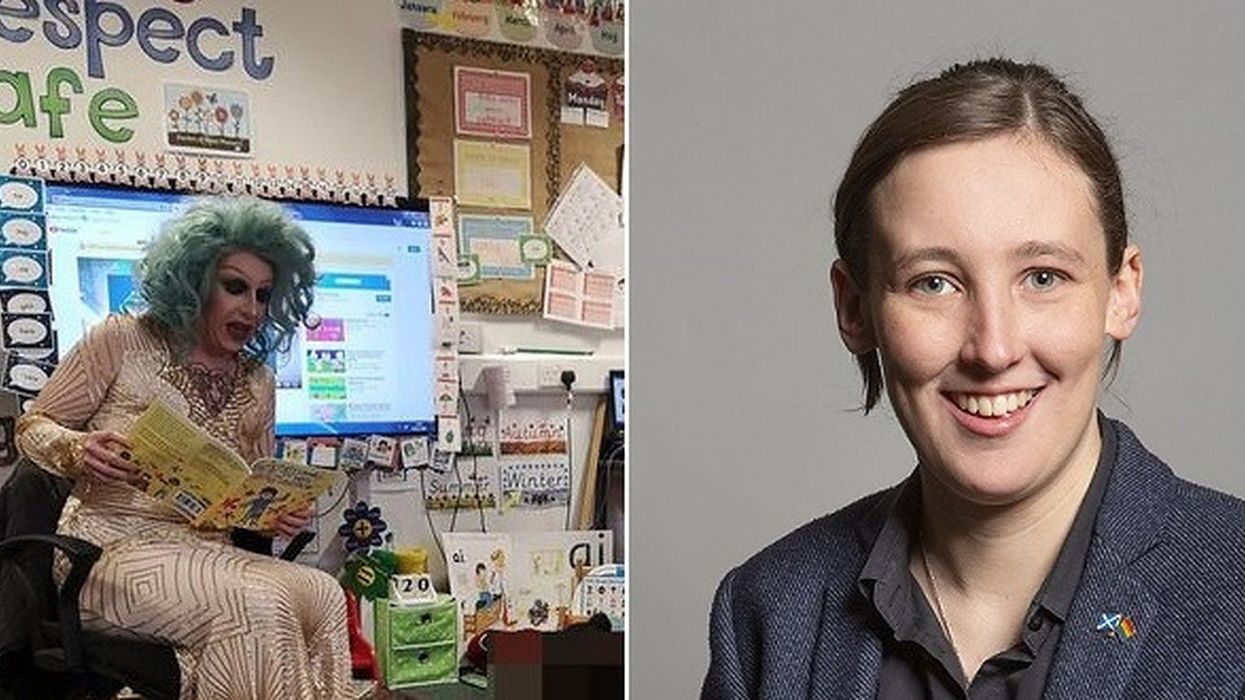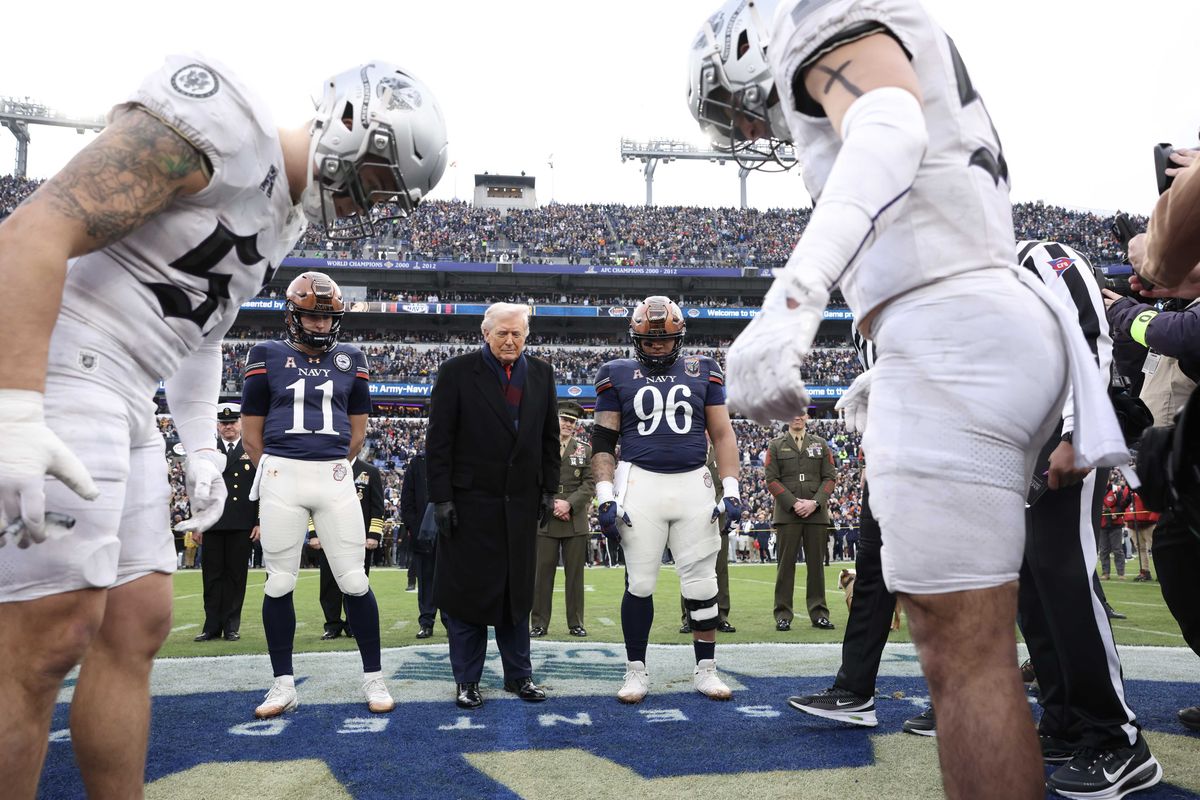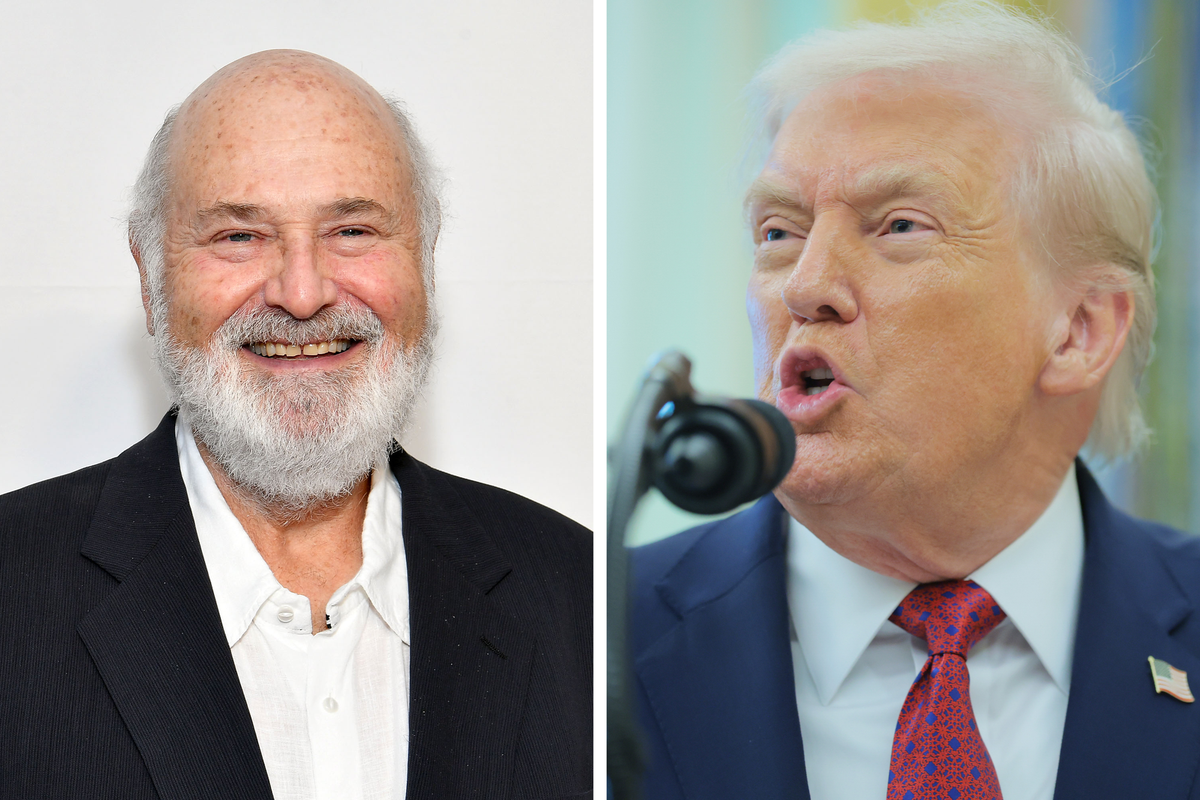Celebrities
Scott Cuthbertson
Feb 25, 2020

Twitter / Wikipedia
It was only recently that Scotland sat proudly at the top of the Rainbow Index – a list of countries ranked for their LGBTQ-inclusive laws.
Numerous media outlets lauded the achievement and the Scottish Government were proud of it too. This milestone also brought a smile to the faces of Scottish LGBTQ+ campaigners like me who had fought so hard to make it happen.
But it’s now starting to feel like more of an anti-LGBTQ+ atmosphere is taking hold of Scotland.
Last week, as part of events to mark LGBTQ+ History Month, pupils from the Rainbow Club at Paisley’s Glencoats Primary School invited a drag queen to read a story. Also in attendance was the local MP Mhairi Black, herself a lesbian.
In a matter days, this fairly innocuous event has whipped up parts of the internet into a frenzy. People are furious about the drag queen’s attendance, with one of major points of being their name: Flowjob (though it’s worth noting that they were only introduced to the children as “Flo”). Several of Flo’s social media posts, including photographs, have also been deemed “inappropriate” for children.
Soon the familiar anti-LGBTQ+ cries of “think of the children” and “stop sexualising kids” began. And they didn’t stop.
Mhairi Black was even branded a “degenerate” and “filthy”. It was sickening.
Depressingly, as Black's response reveals, it’s not news to LGBTQ+ people that some people feel this way about us. After all, it wasn’t so long ago that our very identity was reduced to sexual acts. People always seemed to care more about what we did in the bedroom than the impact that homophobia had on our lives.
The art of drag emerged as a resistance to homophobic laws that criminalised LGBTQ+ people, and an accompanying culture that told us we were unnatural and sinful.
LGBTQ+ people have used drag to express ourselves in a world where just being who we are could get us killed, and it is for that reason drag remains one of our most important cultural assets.
Of course drag can be sexualised, but the idea that drag itself is sexual is akin to age-old tropes about LGBTQ+ people being nothing more than who we have sex with. The argument that drag is always for adults is also disingenuous. Drag artist can, of course, tailor their content like any other artist.
Who hasn’t seen kids laughing at Widow Twankey or Mother Goose at the very same theatres that hold one-off adults-only panto nights where the actors in drag say things they’d never say when kids were enjoying the show? Much of Lilly Savage’s late-night content wasn’t for children, but it didn’t stop her being on Channel 4 Big Breakfast for years.
The standards that LGBTQ+ people are being held to by those who are trying to sexualise drag are higher than for others. This is classic homophobia.
No one suggests that Mike Myers, who performed many a sex scene as Austin Powers, should be excluded him from playing children’s favourite Shrek? Nor was their outrage when rapper Stormzy was invited to a school, despite using explicit lyrics in his work? And quite right too.
In response, the local authority said “the social media content associated with the speaker’s stage persona was not appropriate for children”. Anyone who has seen the posts will agree with this, but I fail to see why this matters when these kids don’t have access to that content because they’re too young? Of course content posted on a platform for over people over 14 years-old might not be appropriate for primary school children. I’m sure a lot of people post things on their social media which aren’t appropriate for young children to read, but does that mean we shouldn’t be allowed near them? Or that we can’t be role models? Of course not.
Visibility is the biggest weapon LGBTQ+ people have, it’s been a driving factor in the huge amounts of legal and social change the UK has seen over the past 50 years, but visibility has to be on our terms, and aligned to our values.
Drag is part of our culture, forged in dark times to create joy. Our culture and our existence is absolutely age appropriate – and we will resist all attempts to tell us otherwise.
Scotland has come so far, but dark forces are now circling.
Having been one of the last parts of the UK to decriminalise homosexuality, it feels like the old Scotland – the socially conservative place we thought we’d left behind – is returning. It is going to take political leadership from those in positions of power, and continued cross-community activism, to keep progress on course.
So if you consider yourself to be an LGBTQ+ ally, the time to speak up is now.
Scott Cuthbertson is a Scottish LGBTQ+ activist.
More: Why I took on Chick-fil-A and kicked them out of Scotland
Top 100
The Conversation (0)













